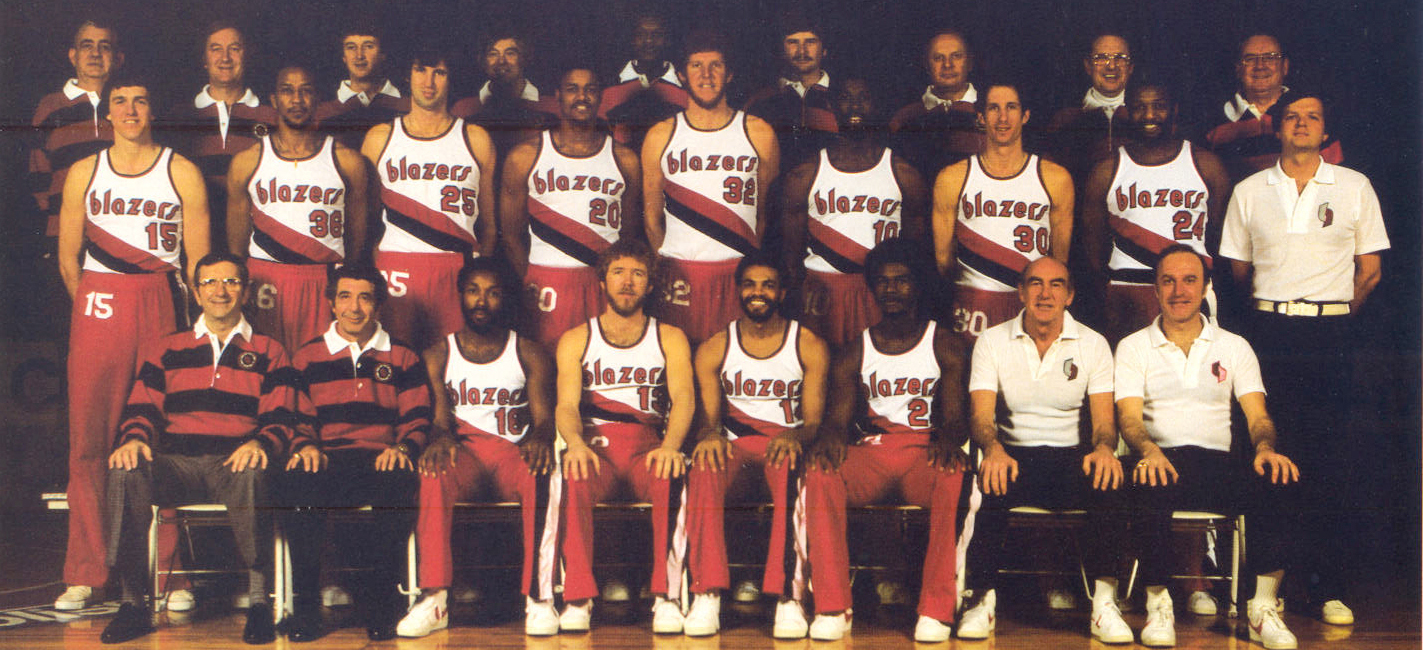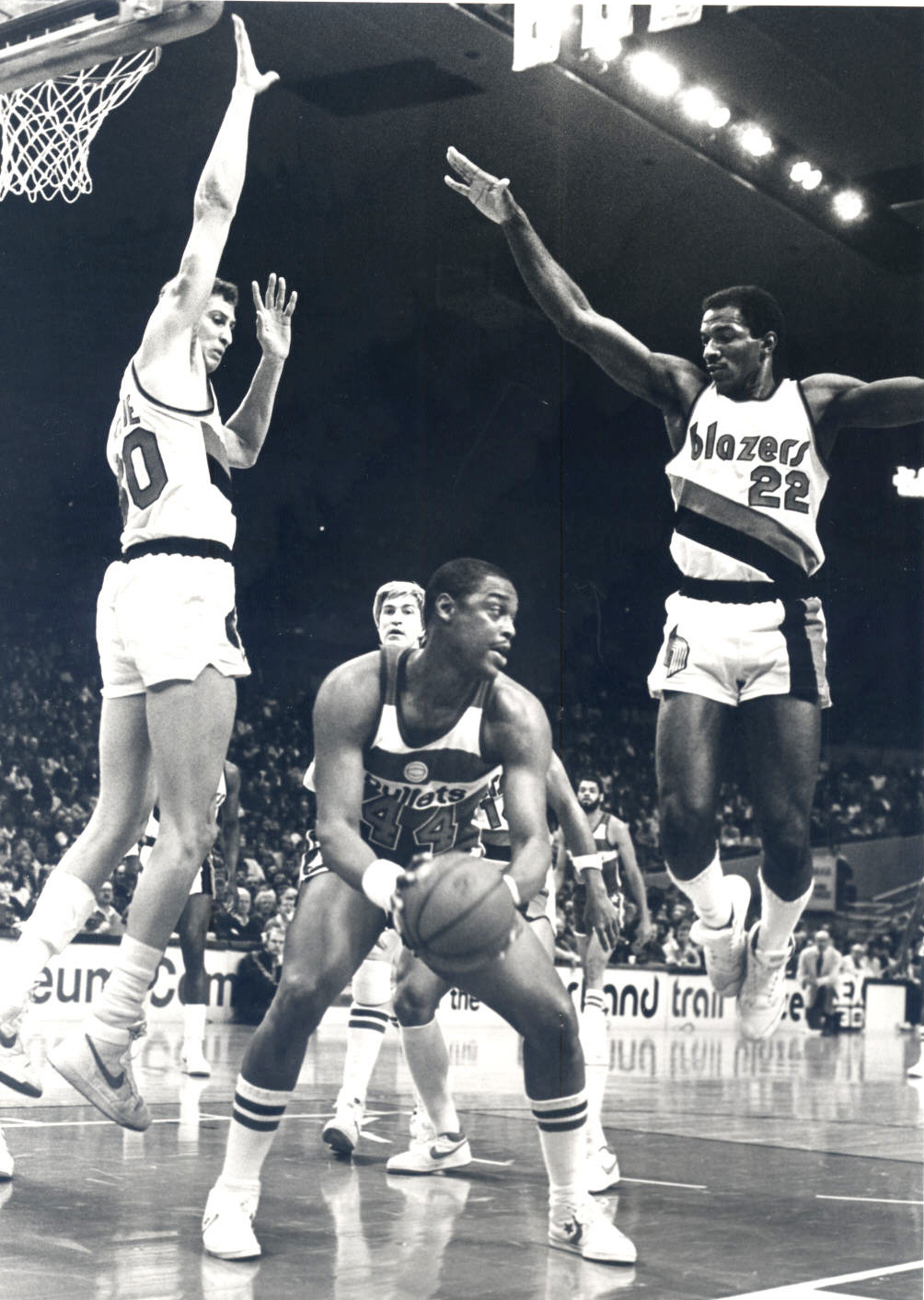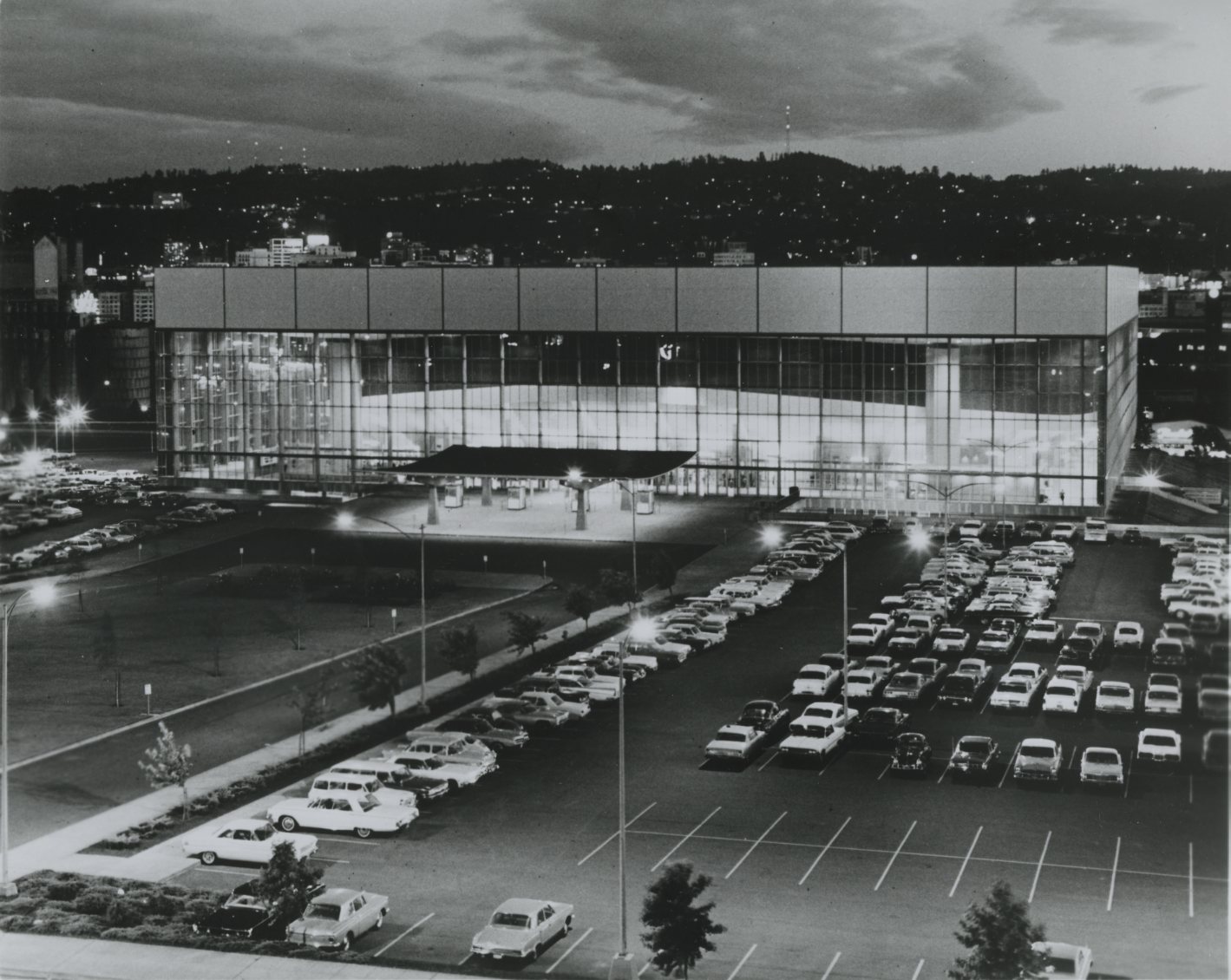In the long history of the Portland Trail Blazers, dating to 1970, one team has risen to the top to claim the NBA championship—the 1976–1977 team, coached by Jack Ramsay. Ramsay served as Portland's head coach for ten years (1976–1986), the longest run in franchise history. His regular-season record was 453–367 (55.2 win percentage), by far the most victories of any Blazer coach. He ranks No. 2 on the franchise list behind Rick Adelman in playoff games (59) and playoff wins (29). Ramsay took nine of his ten Portland teams to the playoffs.
Born in Philadelphia on February 21, 1925, Ramsay spent his early years in Milford, Connecticut, before the family moved back to Philadelphia, where he attended high school. He played both basketball and baseball at St. Joseph's College (now St. Joseph's University) in his hometown and then went on to play six seasons of minor league professional ball in the Eastern Pennsylvania League. He served as head basketball coach at his alma mater from 1955 to 1966, amassing a record of 234–72, with seven Big 5 championships.
In the City of Roses, Ramsay is known as "Dr. Jack." The title was earned. He graduated with a doctorate degree in education from the University of Pennsylvania in 1963, in the middle of a twelve-year run coaching at St. Joseph's.
After coaching at St. Joseph's, Ramsay became general manager of the National Basketball Association's Philadelphia 76ers. In his first season, the 76ers—led by center Wilt Chamberlain—set a league record by finishing 68–13 and went on to win the NBA title. The next season, Ramsay became the 76ers' head coach, and he remained in that position for four seasons, guiding the team to three playoff appearances. In 1972, he was hired as head coach of the Buffalo Braves, where he coached Hall of Fame forward Bob McAdoo and took the Braves to the playoffs three times in four years.
In 1976, Ramsay moved west to coach the Trail Blazers, which had not made the playoffs or even managed a winning record in their first six NBA seasons. Ramsay, sporting an open-necked shirt and flamboyant slacks on the sidelines, melded a unit that featured center Bill Walton and power forward Maurice Lucas into a championship team.
The Blazers finished the regular season 45–37, good for only second place in the Pacific Division and third place in the Western Conference, but they were gathering momentum. In the playoffs, they beat the Chicago Bulls, the Denver Nuggets, and the Los Angeles Lakers on the way to the NBA finals, where they defeated Julius Erving and the Philadelphia 76ers in six games to reign as world champions.
Throughout that unforgettable season, Blazermania was born. An estimated 150,000 adoring fans packed the streets in downtown Portland to hail the newly crowned champions in a parade that the city's old-timers will never forget.
The next season began with another championship in sight. After sixty games, the Blazers were 50–10 and in position to win back-to-back titles. Injuries to many of the key performers, including Walton, paid a price. Portland finished the regular season 58–24 but lost to Seattle in the Western Conference semifinals.
Ramsay remained at the Blazers' helm until 1986, and then continued his career with the Indiana Pacers, for whom he coached three seasons. He moved into a long, successful career as a broadcaster, serving as an analyst for ESPN until shortly before his death. He was inducted into the Naismith Basketball Hall of Fame in 1992 and was voted as one of the ten greatest coaches in NBA history in 1996. He received the Chuck Daly Lifetime Achievement Award from the NBA in 2010.
The players on Portland's 1976–1977 championship squad viewed Ramsay with respect and reverence. “Bill Walton was not the leader of our team,” starting guard Dave Twardzik wrote in a eulogy in the Portland Tribune. “Maurice Lucas was not the leader. There was no one player who was the leader of our team. The true leader was Jack Ramsay. We took all of our cues from him.”
Ramsay was a cerebral coach who expected his players to have a high basketball IQ. “His offensive system was fun to play in,” Twardzik wrote. “We were encouraged to run, but it was a controlled fast break, with structure. Jack was comfortable enough in his coaching and himself that he gave players the freedom to improvise...as long as it was within the system.”
Through his years in Portland and well into his eighties, Ramsay was a fitness buff who taught himself how to surf, cycled halfway across the United States in a week, swam regularly in the ocean, and participated in dozens of triathlons. His dedication to fitness may have been a result of his World War II experience in the U.S. Navy, when he was a member of the Underwater Demolition Teams, an elite special-purpose force. The UDT's primary function was to reconnoiter and destroy enemy defensive obstacles on beaches prior to amphibious landings.
A literate man, Ramsay wrote a pair of books—The Coach's Art (1978) and Dr. Jack's Leadership Lessons Learned from a Lifetime of Basketball (2004). He died from cancer in Naples, Florida, on April 28, 2014.
-
![Jack Ramsay sits in the first row, second from right]()
Portland Trail Blazers, 1977-1978.
Jack Ramsay sits in the first row, second from right Courtesy Oreg. Hist. Soc. Research Library
Related Entries
-
![Clyde Drexler (1962–)]()
Clyde Drexler (1962–)
When people think of the Portland Trail Blazers, many find it difficult…
-
![Paul Allen (1953–2018)]()
Paul Allen (1953–2018)
Paul Allen had an impact on Oregon, both as owner of the Portland Trail…
-
![Portland Trail Blazers]()
Portland Trail Blazers
The Early Years It was February 1970 when at the last minute sports pr…
-
![Veterans Memorial Coliseum]()
Veterans Memorial Coliseum
Veterans Memorial Coliseum is a 12,000-seat arena on the east bank of t…
Map This on the Oregon History WayFinder
The Oregon History Wayfinder is an interactive map that identifies significant places, people, and events in Oregon history.
Further Reading
"'Dr. Jack' Earned a Spot in Hearts, History." Portland Tribune, April 29, 2014.
Goldstein, Richard. "Jack Ramsay, Who Led Blazers to 1977 NBA Title, Dies at 89." New York Times, April 28, 2014.
Ramsay, Jack. Dr. Jack's Leadership Lessons Learned from a Lifetime in Basketball. Hoboken, N.J.: Wiley Publishing, 2004.




